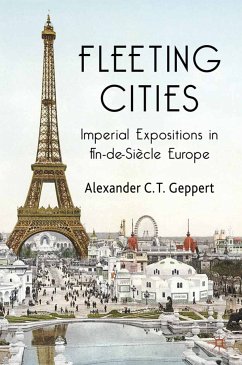Dieser Download kann aus rechtlichen Gründen nur mit Rechnungsadresse in A, B, BG, CY, CZ, D, DK, EW, E, FIN, F, GR, HR, H, IRL, I, LT, L, LR, M, NL, PL, P, R, S, SLO, SK ausgeliefert werden.
"Geppert not only invites us to look beyond exhibitions as vessels of imperial propaganda, but also adds depth to our understanding of them with his theorised account on the spatial element of world exhibitions." (Matthijs Kuipers, European Review of History, Vol. 22 (6), August, 2015)









